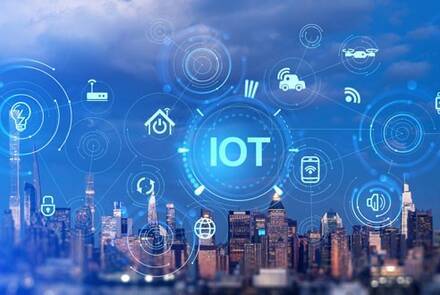The Imperative of Cybersecurity in Smart Cities Implementations
In the era of interconnected technologies and smart urban environments, the Internet of Things (IoT) stands as a driving force behind innovation and efficiency. However, with the proliferation of connected devices and the evolution of smart cities, the critical importance of cybersecurity cannot be overstated. This blog article explores the paramount need for cybersecurity in the context of IoT and smart cities, delving into the potential risks and outlining best practices to safeguard data and infrastructure.
The IoT Landscape: Opportunities and Risks
As smart cities evolve, the integration of IoT technologies presents unparalleled opportunities for efficiency, sustainability, and improved quality of life. From connected devices optimizing traffic flow to smart grids enhancing energy management, the benefits are manifold. However, this interconnectedness also opens the door to new and sophisticated cybersecurity challenges. The very features that make smart cities intelligent and responsive, such as real-time data exchange and remote-control capabilities, can be exploited if not adequately secured. Common points of vulnerability can include the following:
- Data Breaches and Privacy Concerns: The vast amounts of data generated by IoT devices are attractive targets for cybercriminals. Unauthorized access to sensitive information poses a significant threat to individual privacy and can lead to identity theft or other malicious activities.
- Infrastructure Vulnerabilities: Smart city infrastructure, including transportation systems, energy grids, and public services, becomes vulnerable to cyber-attacks. Disruptions in these critical systems can have far-reaching consequences on public safety and city functionality.
- Device Manipulation: Compromised IoT devices can be manipulated to perform malicious actions, such as disrupting communication networks or altering data. This poses a risk to the reliability and integrity of smart city operations.
- Denial of Service (DoS) Attacks: Overloading systems with excessive traffic to the point of failure can disrupt essential services. In the context of smart cities, this can lead to traffic chaos, energy grid failures, or impaired emergency response systems.
Best Practices for Cybersecurity in IoT and Smart Cities
- Encryption and Secure Communication: Implement robust encryption protocols to safeguard data transmitted between devices and networks. This ensures that even if intercepted, the data remains confidential.
- Regular Software Updates and Patch Management: Keep IoT devices and systems up to date with the latest security patches. Regularly updating software helps close vulnerabilities that could be exploited by cybercriminals.
- Network Segmentation: Isolate critical systems and segments of the network to limit the potential impact of a security breach. This practice prevents unauthorized access to sensitive areas of smart city infrastructure.
- Authentication and Access Control: Implement strong authentication mechanisms to verify the identity of users and devices. Establish strict access controls to ensure that only authorized individuals can interact with IoT systems.
- Security by Design: Incorporate cybersecurity measures from the inception of IoT devices and smart city projects. Security should be an integral part of the design and development process rather than an add-on.
- Incident Response and Recovery Plans: Develop comprehensive incident response plans to address cybersecurity incidents promptly. Having a well-defined plan in place helps minimize the impact of a security breach and accelerates recovery efforts.
- Public Awareness and Education: Educate citizens and stakeholders about the importance of cybersecurity in smart cities. Foster a culture of cyber awareness to empower individuals to protect themselves and contribute to overall citywide security.
Building a Secure and Resilient Future
In the journey towards smarter and more connected urban environments, cybersecurity must be a foundational consideration (See also: Cybersecurity in Smart City Surveillance Systems). The benefits of IoT and smart cities are vast, but they come with a responsibility to safeguard the privacy, safety, and well-being of citizens. By adopting robust cybersecurity practices, implementing preventive measures, and fostering a culture of awareness, smart cities can build a secure foundation for the future—one where innovation and resilience go hand in hand, ensuring a connected urban landscape that is not only intelligent but also safe and trustworthy.
For more information about Trigyn’s Smart City & IoT Solutions, Contact Us.






